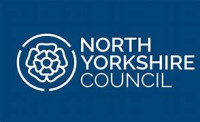Outside of university, there is plenty of support available from the local community and York Council. Take a look at some of the support available:
| YC assessment of needs | This is through York Council and is an assessment of needs for the young carer. This is aimed at young carers under the age of 18. You are also eligible for an assessment if you are a young adult carer (aged 18-25), or an adult carer. The assessment is to establish your individual needs and what your local council can provide to support your role as a carer. Furthermore, the assessment may recognise additional support your loved one requires. |
| Carers emergency card | If a carer looks after someone over 18, who lives in the City of York, then they can apply for a card. The scheme is for Carers who may worry about what will happen to the person they care for if they (the carer) is taken ill or has an accident or another emergency to deal with. Both the carer and the person they look after will know that an emergency plan can be put into action at any time. Carers have said that this gives them peace of mind. |
| York Carers Centre (YCC) |
YCC supports Carers of all ages, there are referral pages for different ages and a professional will assess your referral. Through these referrals, you will receive a carers emergency card, in addition to a Carers discount card. The telephone lines are open Monday to Friday 9.30am to 4.30pm (4pm on a Friday) for information and advice. There is a free evening advice line on Wednesdays from 5.00pm to 8pm on the main number: 01904 715 490. Further support available:
|
| Buttle UK | Students are eligible for funding under the age of 21 who are facing expectational circumstances, such as caring for a loved one. You can apply for the grant, in addition to financial support from the university. The dedicated point of contact at university, or a social worker, will support you in your funding application. |
| Carers discount card | This is a free card for carers that provides discounts to save money at local businesses. |











